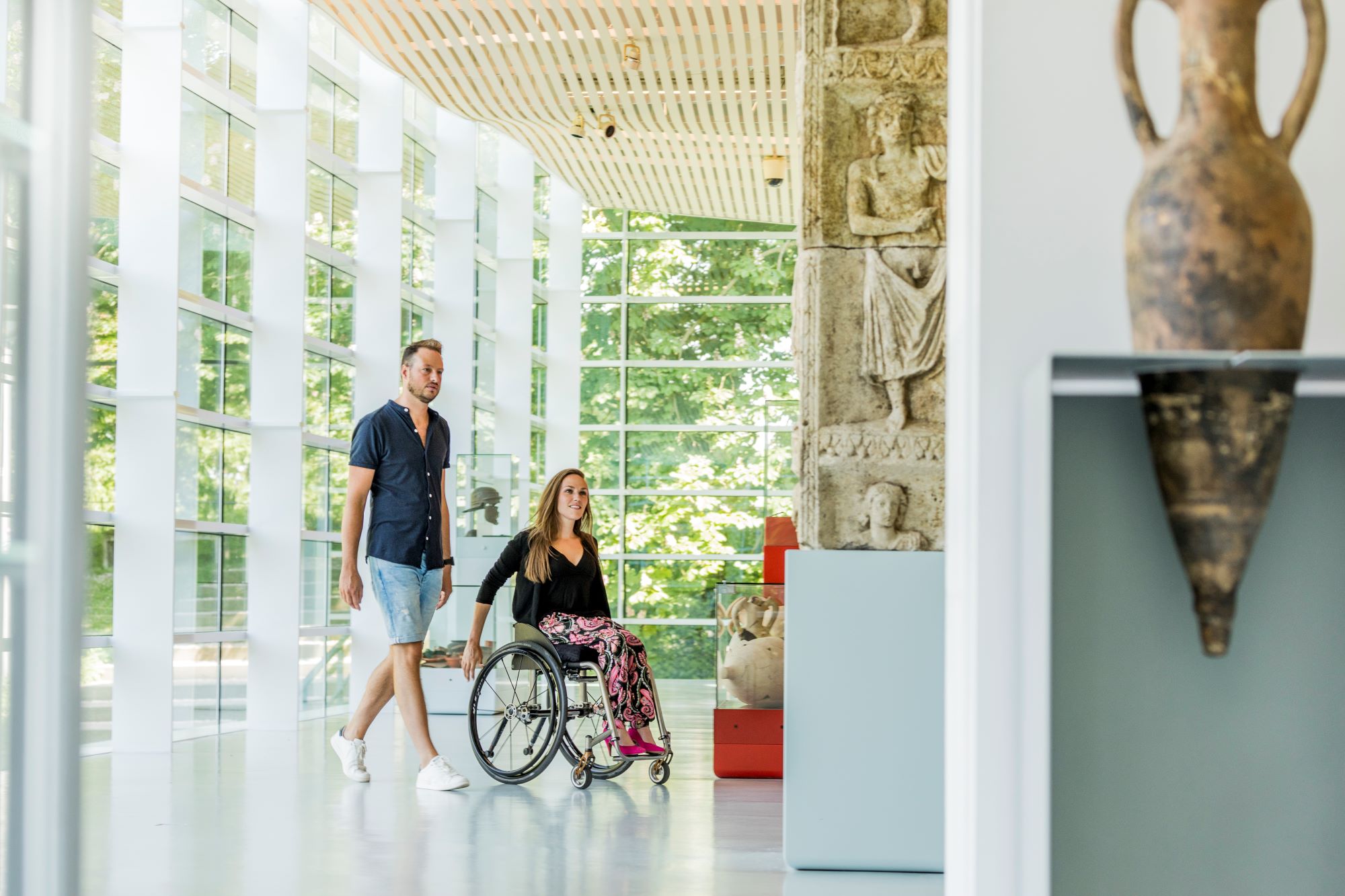Accessible Destinations
There are approximately 4 million people with a disability in the Netherlands, which is almost a quarter of the population. According to the Convention on the Rights of Persons with Disabilities, which has been ratified by the Netherlands, everyone has the right to a good quality of life, so including recreational, tourist, leisure and sports activities. Already there are many initiatives and projects to make tourism accessible, but it is still not self-evident.
So is nothing happening at all? Certainly it is, some of the initiatives are at the level of a region, of a destination. The three-year project called Zorgeloos op vakantie (Carefree Holidaymaking) in the region of Rijk van Nijmegen (RvN@) focuses on improved accessibility of tourism offerings and accessible marketing and communication of Visit Nijmegen. Following on from this, we want to put the accessibility issue on the agenda and ensure it is addressed. The Achterhoek region started a project called Onbeperkt Genieten (Unlimited Enjoyment) this year. The emphasis is on the entrepreneurial side: awareness; testing the physical accessibility with an accompanying advisory report; and making information available. The Vechtdal region has been active in the field of accessibility for some time and is mainly interested in securing and creating support for accessibility within a destination at the process level.
Wonderful projects, but there is still a lack of overarching and thorough research. This project should fill that gap with attention across the full range of disabilities such as people with physical, visual, hearing or intellectual disabilities.
Objective
The project comprises three objectives:
- Conducting research into the demand side of visitors with a disability and their families during all phases of the customer journey (pre, during, post) to a destination;
- Gaining insight into how this problem can be solved in a sustainable manner, so that a destination is easily accessible, suitable and an obvious choice for everyone;
- Developing a toolkit for ‘Accessible Destinations’ for regions with accompanying implementation plan.
Using this toolkit, regions are able to engage in the continued development of accessible destinations, in a consistent and specific manner. This also includes an implementation plan. This plan supports a region in ensuring and creating a support base for accessibility within a destination at the process level.
Approach
The first step in this project is to research which data and knowledge about guests and residents with a disability at a destination are available, both quantitative and qualitative. Using these research results and this knowledge, destinations can underpin their strategy and policy decisions. Moreover, it will be possible to develop appropriate offerings that respond well to the wants and needs of visitors and residents with a disability. This part of the research takes place in an iterative manner, both by means of desk research and in practice. In the set-up and execution of this research, people with a disability will be involved to co-direct the design and approach. This will lead to more insight into what an accessible destination means from the perspective of people with a disability and their families.
With this insight from the first phase, a foundation is laid for the start of the project’s second phase: developing a toolkit to facilitate destinations in becoming accessible.
The researchers advocate a transdisciplinary approach where there is a real dialogue between scientists and other societal parties. This project is about connecting worlds that are not each other's natural partners, it is about creating a yet non-existent collaboration where new partners make new agreements and create new language.
Partners
- Joint Projects
- Province of Gelderland
- Municipality of Berg en Dal-RvN@
- Achterhoek region
- Vechtdal region
Project team
- Karin Stiksma, Joint Projects/community Toegankelijke Recreatie, karin@jointprojects.nl
- Jeroen Klijs (BUas)
- Eugenio van Maanen (BUas)
- Jasper Heslinga (NHL Stenden)
- Brigitte Nitsch (NHL Stenden)
Planning
January 2022 – December 2022
Status
The project has been completed. The results (report, infographic and toolkit) are available (in Dutch) though the Joint Projects website. The main results are described in the article 'How can regions become accessible to everyone?' on the CELTH-website.



